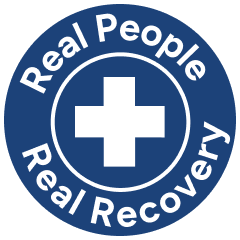Home / Drug & Alcohol Rehab Programs Across New England / Adderall Addiction: Abuse Signs & Treatment Options
Primarily prescribed for the treatment of ADHD, Adderall is also one of the most commonly abused prescription drugs. From 2002 to 2006, the sale of Adderall increased more than 3,000%. By 2010, more than 18 million Adderall prescriptions were in circulation. Millions of patients have experienced an improvement in their ability to remain alert and focused after taking Adderall as prescribed by their doctor. Nevertheless, so many legal Adderall prescriptions increase the opportunity for Adderall addiction.
Because Adderall is a stimulant, those who abuse the prescription drug are commonly students, corporate professionals, and shift workers looking to stay awake for late or long hours. People who abuse Adderall are often able to hide the dangerous habit relatively easily. Therefore, it can be difficult for employers, university staff, friends, and family to detect abuse early. Nevertheless, there are telltale signs that may indicate the presence of an Adderall addiction.
For parents, friends, or others who are close to an individual who may be abusing Adderall, knowing how to visibly identify the drug can help detect the problem early on. In tablet form, Adderall can typically be purchased in a white/off-white, blue, or peach-colored hard pill. Capsules, which are usually blue, yellow, or orange, are also available. Surprisingly, people who do not have ADHD do not experience cognitive enhancement when using the drug. In fact, studies indicate students who typically abuse Adderall often have lower grades than those who do not abuse the drug.
Standard side effects of using Adderall may afflict patients who use the drug as prescribed by a doctor and those who use the drug illegally or in a way that deviates from their doctors’ instructions.
Common side effects may include any of the following:

In addition, it is important to note that the presence of Adderall side effects is not automatically indicative of abuse or addiction. However, people who do not use Adderall as prescribed or under a doctor’s guidance may be more likely to experience adverse effects.
A severe overdose may include:
Taking too much Adderall or consuming the drug by snorting, injecting, or other non-standard means of administration increases the likelihood of overdose. Combining Adderall with alcohol or other drugs can also increase the likelihood of overdose. Symptoms of overdose may range from mild to severe.
Mild symptoms may include:
Side effects may be severe depending on the individual’s sensitivity to the drug and the amount of Adderall taken.
The two main approaches to substance use disorder treatment and recovery are medication-assisted treatment and psychotherapy. Both approaches can be combined and offered within the same inpatient or outpatient program. The FDA currently has not approved specific medication for the treatment of Adderall addiction. Because of this, medication-assisted programs are mostly reserved for the treatment of opioids. Therefore, Adderall addiction treatment is typically based largely on psychotherapy.

Firstly, before beginning a rehab curriculum, clients must detox off drugs and alcohol. People who have more severe Adderall habits may be referred to a medical detox program. Some treatment centers offer medical detox onsite, so patients may detox at the same location where they complete their treatment programs. Medical detox allows patients to receive the mental, spiritual, moral, and medical support they need to get through the withdrawal phase without relapsing. Granite Recovery Centers provide medical detoxification. This detox is for individuals who do not need immediate medical intervention, are not a danger to themselves, and are capable of emergency self-evacuation.
Withdrawal occurs when a person has become physically dependent on Adderall, and they suddenly stop abusing the drug. However, a person may experience withdrawal even if they have not become fully addicted to Adderall.
Adderall withdrawal symptoms may include any of the following:
In some cases, quitting Adderall cold turkey without medical supervision can be dangerous. Medical detox facilities can often provide medication to minimize certain withdrawal symptoms. This makes the process more comfortable for the individual.
Addiction specialists typically recommend people who have abused Adderall long-term or those who otherwise have a very severe addiction complete a residential or an inpatient program. Participants attend therapy sessions during an inpatient program, participate in other activities to support their recovery, and reside onsite at the treatment center. Residential treatment centers provide nutritious meals, supervision, and exercise opportunities. In addition, structured environments that many people need when trying to overcome substance use are readily available.
Often, clients who require medical attention may receive the support they need onsite. Alternatively, the treatment center staff may arrange for program participants to receive medical services offsite. The duration of an inpatient treatment program may range from several weeks to several months. In some cases, a client requires the stability of sleeping away from their home environment. In other cases, clients may have work, school, or childcare responsibilities that prohibit them from residing at a treatment facility for several weeks. For these clients, there are alternative program structures.
Inpatient is not a good fit for every patient, depending on various factors. This includes the severity of the substance abuse issues and the capacity for the home environment to be a safe, sober situation conducive to recovery. Patients who have legitimate conflicts that prevent them from residing at the treatment center are referred to outpatient treatment. Rehab centers generally require clients to have a stable, supportive, drug-free home environment when they refer to outpatient treatment at the very beginning of their recovery. Intensive and hybrid outpatient programs combine the structure and supervision of an inpatient program with the flexibility of outpatient treatment.
Residential rehab programs provide everything the client needs onsite. Intensive outpatient programs require the client to commute to the treatment center daily to receive services for a portion of the day and return home to sleep at night. Outpatient is best for clients who have the motivation and the commitment to commute to the treatment center as required. In some cases, clients for whom outpatient treatment is appropriate may be provided transportation by the treatment center or by a third-party non-profit or service provider.
More treatment centers have begun to incorporate holistic therapies alongside traditional treatment modalities such as the 12-step model. Holistic therapies provide additional mental and spiritual support as clients work through their individual programs. In addition, rehab centers also often offer sports, gym sessions, and yoga to support clients’ physical health and fitness. Art therapy, music, and writing exercises provide creative outlets through which program participants can learn to express themselves.
Students and people who otherwise might have limited incomes should not let concerns about financial costs discourage them from seeking treatment for Adderall abuse. Treatment is available to people who have low income or no income. State governments and non-profits operate programs at no cost to individuals who do not have insurance and cannot pay for Adderall rehab out of pocket. Free, low-cost, and self-pay Adderall treatment facilities offer proven treatment and generally provide high-quality care. Therefore, deciding which rehab program may work best for you is a highly individual, personal choice you should make after speaking with at least one recovery specialist and inquiring about programs that may be the best fit.
In some cases, an individual may have an underlying mental health condition that requires treatment to allow the patient to have a more thorough recovery. People who have chronic episodes of depression or anxiety may use drugs like alcohol to help them feel more energized or focus on the tasks their jobs or studies require.
Treating addiction without addressing a co-occurring mental illness ultimately leaves the individual to find other ways to self-medicate whenever the underlying mental health condition reemerges. Granite Recovery Centers offers dual diagnosis programs to provide resources to individuals who require medication and therapy to treat the mental health condition that may make the person more inclined to abuse Adderall.
If you believe you or your loved one may have a mental health condition contributing to Adderall abuse, take action. Request information about dual diagnosis treatment when speaking to an addiction specialist. People who have undiagnosed conditions may finally receive the support they may have unknowingly needed all along before the addiction began.
Based in New Hampshire, Granite Recovery Centers has been transforming lives for more than 10 years. Alcohol- and drug-dependent adults from all over New England travel to Granite Recovery Centers’ facilities to experience a proven comprehensive 12 step-based curriculum, dedicated staff and clinicians who care, and recovery settings located in tranquil surroundings. Our clients are also generally encouraged to participate in holistic therapies to support a healthy mind, body, and spirit.
In addition to outpatient and primary inpatient programs, we offer onsite detox, medically assisted treatment, sober living environments, extended care, and intensive outpatient counseling. Our growing community of alumni continues to bear witness to the effectiveness of our treatment modalities. After graduating from one of our primary treatment programs, we will connect you with the resources and the like-minded, supportive community you need to encourage you as you continue to walk your personal path of post-treatment recovery. In conclusion, If you or someone you know is considering enrolling in a treatment program for Adderall abuse, contact one of our compassionate addiction specialists to learn more.

If you want to visit one of our New England drug rehab centers, please contact us at Granite Recovery Centers. Our experts will work with you to find a high-quality treatment option that meets your needs. We strive to provide a holistic level of treatment with evidence-based care, giving you the help necessary to regain your sobriety for good.

| Cookie | Duration | Description |
|---|---|---|
| __cf_bm | 1 hour | This cookie, set by Cloudflare, is used to support Cloudflare Bot Management. |
| .AspNetCore.Cookies | 11 months | This cookie is installed by BayMark Health Services, Inc. The cookie is used to maintain persistence with ChatGPT sessions. |
| .AspNetCore.CookiesC1 | 11 months | This cookie is installed by BayMark Health Services, Inc. The cookie is used to maintain persistence with ChatGPT sessions. |
| .AspNetCore.CookiesC2 | 11 months | This cookie is installed by BayMark Health Services, Inc. The cookie is used to maintain persistence with ChatGPT sessions. |
| .AspNetCore.CookiesC2 | 11 months | This cookie is installed by BayMark Health Services, Inc. The cookie is used to maintain persistence with ChatGPT sessions. |
| .AspNetCore.CookiesC3 | 11 months | This cookie is installed by BayMark Health Services, Inc. The cookie is used to maintain persistence with ChatGPT sessions. |
| .AspNetCore.CookiesC3 | 11 months | This cookie is installed by BayMark Health Services, Inc. The cookie is used to maintain persistence with ChatGPT sessions. |
| AspNetCore.Cookies | 11 months | This cookie is installed by BayMark Health Services, Inc. The cookie is used to maintain persistence with ChatGPT sessions. |
| AspNetCore.CookiesC1 | 11 months | This cookie is installed by BayMark Health Services, Inc. The cookie is used to maintain persistence with ChatGPT sessions. |
| cookielawinfo-checkbox-advertisement | 1 year | Set by the GDPR Cookie Consent plugin, this cookie records the user consent for the cookies in the "Advertisement" category. |
| cookielawinfo-checkbox-analytics | 11 months | This cookie is set by GDPR Cookie Consent plugin. The cookie is used to store the user consent for the cookies in the category "Analytics". |
| cookielawinfo-checkbox-functional | 11 months | The cookie is set by GDPR cookie consent to record the user consent for the cookies in the category "Functional". |
| cookielawinfo-checkbox-necessary | 11 months | This cookie is set by GDPR Cookie Consent plugin. The cookies is used to store the user consent for the cookies in the category "Necessary". |
| cookielawinfo-checkbox-others | 11 months | This cookie is set by GDPR Cookie Consent plugin. The cookie is used to store the user consent for the cookies in the category "Other. |
| cookielawinfo-checkbox-performance | 11 months | This cookie is set by GDPR Cookie Consent plugin. The cookie is used to store the user consent for the cookies in the category "Performance". |
| CookieLawInfoConsent | 1 year | CookieYes sets this cookie to record the default button state of the corresponding category and the status of CCPA. It works only in coordination with the primary cookie. |
| elementor | never | The website's WordPress theme uses this cookie. It allows the website owner to implement or change the website's content in real-time. |
| viewed_cookie_policy | 11 months | The cookie is set by the GDPR Cookie Consent plugin and is used to store whether or not user has consented to the use of cookies. It does not store any personal data. |
| wpEmojiSettingsSupports | session | WordPress sets this cookie when a user interacts with emojis on a WordPress site. It helps determine if the user's browser can display emojis properly. |
| Cookie | Duration | Description |
|---|---|---|
| yt-player-bandwidth | never | The yt-player-bandwidth cookie is used to store the user's video player preferences and settings, particularly related to bandwidth and streaming quality on YouTube. |
| yt-player-headers-readable | never | The yt-player-headers-readable cookie is used by YouTube to store user preferences related to video playback and interface, enhancing the user's viewing experience. |
| yt-remote-cast-available | session | The yt-remote-cast-available cookie is used to store the user's preferences regarding whether casting is available on their YouTube video player. |
| yt-remote-cast-installed | session | The yt-remote-cast-installed cookie is used to store the user's video player preferences using embedded YouTube video. |
| yt-remote-connected-devices | never | YouTube sets this cookie to store the user's video preferences using embedded YouTube videos. |
| yt-remote-device-id | never | YouTube sets this cookie to store the user's video preferences using embedded YouTube videos. |
| yt-remote-fast-check-period | session | The yt-remote-fast-check-period cookie is used by YouTube to store the user's video player preferences for embedded YouTube videos. |
| yt-remote-session-app | session | The yt-remote-session-app cookie is used by YouTube to store user preferences and information about the interface of the embedded YouTube video player. |
| yt-remote-session-name | session | The yt-remote-session-name cookie is used by YouTube to store the user's video player preferences using embedded YouTube video. |
| ytidb::LAST_RESULT_ENTRY_KEY | never | The cookie ytidb::LAST_RESULT_ENTRY_KEY is used by YouTube to store the last search result entry that was clicked by the user. This information is used to improve the user experience by providing more relevant search results in the future. |
| Cookie | Duration | Description |
|---|---|---|
| _uetsid | 1 day | Bing Ads sets this cookie to engage with a user that has previously visited the website. |
| _uetvid | 1 year 24 days | Bing Ads sets this cookie to engage with a user that has previously visited the website. |
| Cookie | Duration | Description |
|---|---|---|
| _fbp | 3 months | Facebook sets this cookie to display advertisements when either on Facebook or on a digital platform powered by Facebook advertising after visiting the website. |
| _ga | 1 year 1 month 4 days | Google Analytics sets this cookie to calculate visitor, session and campaign data and track site usage for the site's analytics report. The cookie stores information anonymously and assigns a randomly generated number to recognise unique visitors. |
| _ga_* | 1 year 1 month 4 days | Google Analytics sets this cookie to store and count page views. |
| _gat_UA-* | 1 minute | Google Analytics sets this cookie for user behaviour tracking. |
| _gcl_au | 3 months | Google Tag Manager sets the cookie to experiment advertisement efficiency of websites using their services. |
| _gid | 1 day | Google Analytics sets this cookie to store information on how visitors use a website while also creating an analytics report of the website's performance. Some of the collected data includes the number of visitors, their source, and the pages they visit anonymously. |
| _hjSession_* | 1 hour | Hotjar sets this cookie to ensure data from subsequent visits to the same site is attributed to the same user ID, which persists in the Hotjar User ID, which is unique to that site. |
| _hjSessionUser_* | 1 year | Hotjar sets this cookie to ensure data from subsequent visits to the same site is attributed to the same user ID, which persists in the Hotjar User ID, which is unique to that site. |
| _hjTLDTest | session | To determine the most generic cookie path that has to be used instead of the page hostname, Hotjar sets the _hjTLDTest cookie to store different URL substring alternatives until it fails. |
| Cookie | Duration | Description |
|---|---|---|
| __ctmid | 1 month | CallTrackingMetrics sets this cookie to determine the advertising channel that led a visitor to the website and also show the tracking phone number that corresponds to that channel. |
| fr | 3 months | Facebook sets this cookie to show relevant advertisements by tracking user behaviour across the web, on sites with Facebook pixel or Facebook social plugin. |
| MUID | 1 year 24 days | Bing sets this cookie to recognise unique web browsers visiting Microsoft sites. This cookie is used for advertising, site analytics, and other operations. |
| test_cookie | 15 minutes | doubleclick.net sets this cookie to determine if the user's browser supports cookies. |
| VISITOR_INFO1_LIVE | 6 months | YouTube sets this cookie to measure bandwidth, determining whether the user gets the new or old player interface. |
| VISITOR_PRIVACY_METADATA | 6 months | YouTube sets this cookie to store the user's cookie consent state for the current domain. |
| YSC | session | Youtube sets this cookie to track the views of embedded videos on Youtube pages. |
| yt.innertube::nextId | never | YouTube sets this cookie to register a unique ID to store data on what videos from YouTube the user has seen. |
| yt.innertube::requests | never | YouTube sets this cookie to register a unique ID to store data on what videos from YouTube the user has seen. |
| Cookie | Duration | Description |
|---|---|---|
| ct213024 | session | Description is currently not available. |
| ENTERPRISE_SESSION | 7 days | Description is currently not available. |
| guest | 1 month | No description available. |
| JOTFORM_SESSION | 1 month | No description available. |
| MSPTC | 1 year 24 days | Description is currently not available. |
| userReferer | 1 month | No description available. |